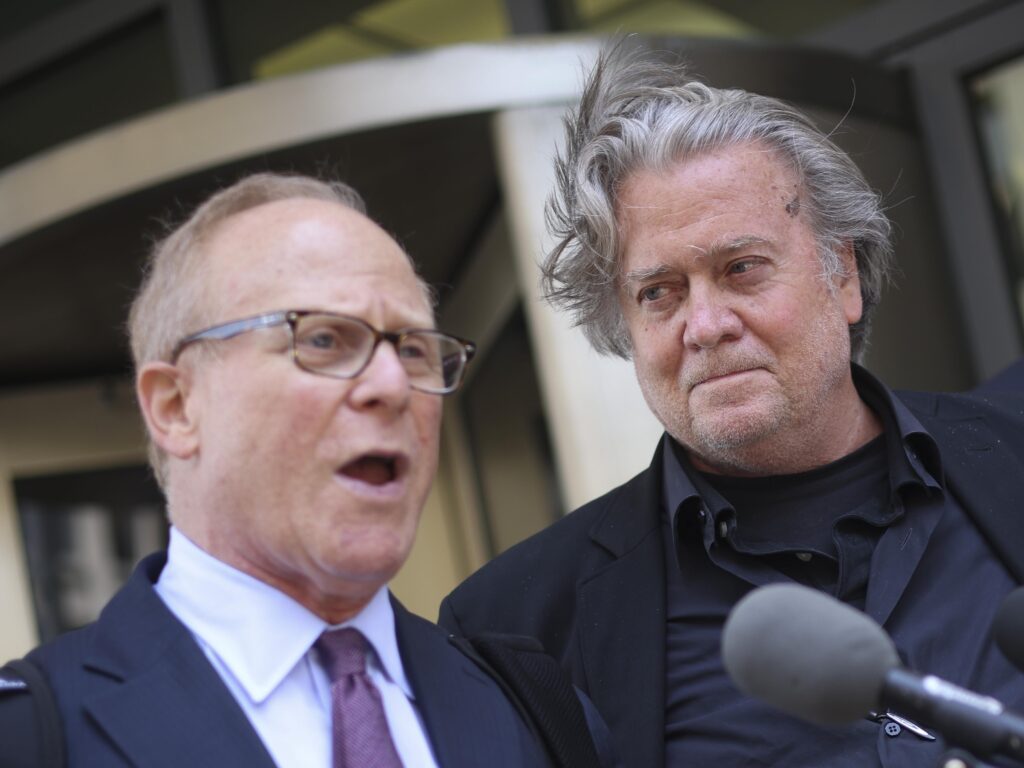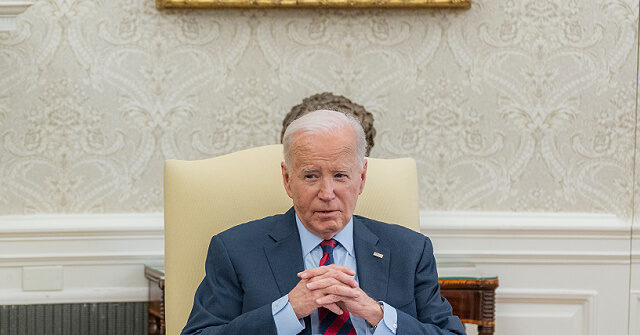
An attorney for Steve Bannon, the former White House chief strategist for former President Donald Trump and the host of the War Room podcast, issued a statement in response to an appeals court upholding a contempt conviction for defying a subpoena from the January 6 Select Committee.
David Schoen, Bannon’s attorney issued a statement in which he described the court’s decision as “wrong” and reflecting a “very dangerous view of the threshold for criminal liability for any defendant” in the nation.
Steve Bannon, adviser to former President Donald Trump, listens as his attorney David Schoen speaks to the media outside of the E. Barrett Prettyman U.S. Courthouse on June 15, 2022, in Washington, DC. (Win McNamee/Getty Images)
“There are many fundamentally important constitutional issues at stake in this case,” Schoen said in the statement. “Today’s decision is wrong as a matter of law and it reflects a very dangerous view of the threshold for criminal liability for any defendant in our country and for future political abuses of the congressional hearing process.”
Bannon had served as the executive chairman for Breitbart News prior to being hired as the CEO of the Trump campaign in August 2016.
He later joined the Trump administration as a chief strategist and left in August 2017. Bannon later rejoined Breitbart News until he left again in early 2018.
🚨🚨🚨BREAKING: STATEMENT FROM STEVE BANNON’S ATTORNEY, DAVID I. SCHOEN – MAY 10, 2024
READ STATEMENT HERE: pic.twitter.com/C5ag6RfwLQ
— Grace Chong 🇺🇸 (@gc22gc) May 10, 2024
Schoen’s statement came in response to a 20-page ruling by a three-judge panel for the U.S. Circuit Court of Appeals in Washington, DC. The decision from the judges likely means that Bannon will be sentenced to serve four months in prison, according to Axios.
This comes after Bannon was convicted of two counts of contempt of Congress for defying a subpoena from the now-defunct January 6 Select Committee.
“It is unconscionable to hold a private citizen criminally liable for responding to a subpoena in the manner his lawyer told him is the only manner the law permits and especially when a constitutional principle like executive privilege is involved,” Schoen’s statement adds. “The panel today held that it is bound by the 1961 Licavoli decision, notwithstanding the construction given to the word ‘willfully’ in the criminal law context, which for decades clearly has required some determination that the defendant believed his conduct was wrong.”
Former White House adviser Peter Navarro was the first official from the Trump administration to serve a four-month prison sentence after being in contempt of Congress for defying a subpoena from the January 6 Select Committee. Navarro reported to prison to begin his sentence in March.















